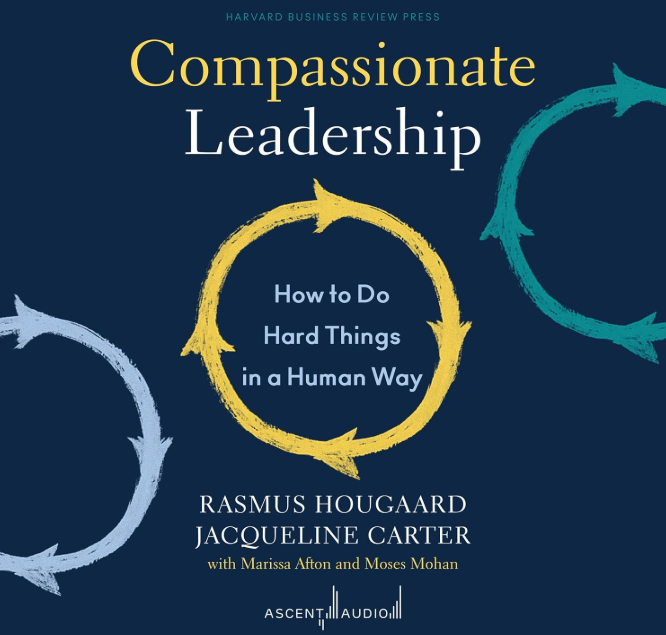|

Empathy: The Secret Ingredient to Stronger Leadership
In working with organizations across various industries, I’ve seen firsthand how leadership strategies evolve. Many leaders focus on efficiency, results, and profitability, but the most powerful tool in leadership isn’t just about hitting targets—it’s empathy.
Empathy isn’t just about being kind or considerate; it’s the ability to understand and relate to the emotions, challenges, and perspectives of others. It means recognizing the human element in business—whether in construction, finance, healthcare, technology, or any industry. Leading with empathy fosters trust, enhances collaboration, and creates a work environment where people feel valued and motivated to contribute their best efforts.
Why Empathy Matters in Leadership
In high-pressure industries, where deadlines, risks, and rapid decision-making are critical, empathy might not always be the first thing leaders think about. However, I’ve seen time and again how it transforms workplace culture and performance. When leaders demonstrate genuine care, employees are more engaged, creative, and committed.
Empathy fosters an environment where people feel heard, respected, and empowered. It’s not about having all the answers—it’s about being present, actively listening, and acknowledging the experiences of those around you. When leaders embrace empathy, they cultivate stronger teams that perform at a higher level because they feel supported and understood.
How to Lead with Empathy
Here are some key strategies I encourage leaders to adopt in order to foster an empathetic leadership approach:
1. Listen Actively: Instead of immediately jumping in with solutions, take the time to truly hear your team out. Sometimes, people don’t need an instant fix—they need to know their concerns are understood before solutions can be effective.
2. See Through Their Perspective: Try to view situations from your employees’ standpoint. Whether it’s the stress of meeting a deadline, balancing workloads, or dealing with uncertainty, acknowledging their reality helps build trust and camaraderie.
3. Be Authentic: Leaders who openly share their challenges and experiences create a culture of honesty and transparency. When teams see their leaders as real people, they feel more connected and comfortable sharing their own struggles and ideas.
4. Offer Support, Not Just Solutions: Leadership isn’t about solving every problem immediately. Sometimes, it’s about being present, providing encouragement, and reassuring your team that they have the backing to overcome obstacles.
5. Acknowledge and Validate Emotions: Whether an employee is frustrated over a project delay or excited about a milestone, recognizing their emotions fosters a sense of belonging. People don’t just want to be heard—they want to feel that their experiences matter.
Empathy in Leadership = Stronger Organizations
Leading with empathy doesn’t make a leader weak or indecisive—it makes them effective. When employees know they are genuinely valued, they become more engaged, committed, and invested in their work. Empathy-driven leadership doesn’t just improve morale; it enhances overall business performance and success.
So, I challenge you and your organization to lead with more heart. Listen more closely, connect more deeply, and witness how your leadership transforms. At the end of the day, people don’t just remember what goals were achieved or what numbers were hit—they remember how their leaders made them feel along the way.
Sheeba Varghese
Reminder to Take Care of Yourself This Week!
As leaders, we're often pouring our energy into others—guiding, supporting, and nurturing those around us. But if we’re constantly giving without taking time to recharge, we will soon be running on empty. Filling your own cup isn’t just a luxury—it’s a necessity. When you take the time to replenish, you show up more present, energized, and effective for yourself and your team.
I want to challenge you to write from one of these journal prompts:
- How does taking care of yourself support your ability to lead with empathy?
- What are some simple ways you can ensure you’re filling your own cup this month?

Life Lately: Children's Book Author Event!
I am thankful to Woods Academy School in Bethesda, Maryland for hosting me for an Author Event. For those who don’t know me, I began my career many years ago in a private school, teaching math. If someone told me then that I would have a children’s book and that I would be speaking about said book at an Author event, I would have probably laughed at you. Needless to say, I am learning to be open to the various turns our lives can take. It was such a wonderful experience! 

Leadership Resource: "Compassionate Leadership" by Rasmus Hougaard and Jacqueline Carter
The book "Compassionate Leadership," by Rasmus Hougaard and Jacqueline Carter is helpful in the journey to learning how to be an empathetic leader. The book explores how leaders can balance compassion with effectiveness, especially in challenging times. It gives practical tools and data-backed insights to help leaders integrate compassion with wisdom, ensuring they can lead well while still achieving results.
Click here to purchase the book on Amazon!

Leadership Spotlight: Mari Copeny
At just 16, Mari Copeny, known as "Little Miss Flint," has become a powerful voice in her community. After her letter to President Obama led to $100 million in relief for Flint, she continued advocating for her community. Mari has raised over $700,000 for Flint Kids, launched her own water filter initiative, and worked to address toxic water nationwide. Through her activism, Mari empowers young people and fights for a cleaner world.
Check out her website and learn more about Mari Copeny's story here!

 Sheeba Varghese is a strategic partner for your talent development solutions and the author of Confidence, Clarity & Ease: A Guide For Emerging Leaders To Thrive. Her passion is to inspire and equip men and women to lead with excellence and authenticity within the spheres of influence that they are called to impact in life. The spheres may be in a home, on a team, in a classroom, among partners in a firm, or within management, to name a few. Sheeba Varghese is a strategic partner for your talent development solutions and the author of Confidence, Clarity & Ease: A Guide For Emerging Leaders To Thrive. Her passion is to inspire and equip men and women to lead with excellence and authenticity within the spheres of influence that they are called to impact in life. The spheres may be in a home, on a team, in a classroom, among partners in a firm, or within management, to name a few.
Sheeba works with:
Senior Leaders and professionals who want to develop stronger leadership skills, have impact, and move forward in their careers
Teams who want to work cohesively within their organizations
Coaches who want to renew or apply for certification with ICF
If you want to improve your leadership skills, transition from managing to leading, ensure your team is amazingly successful, increase your self-awareness, and progress your career, or aspire to be a masterful coach for your clients, then Sheeba would love to support you. She works with clients globally, both face-to-face, by phone, or by Zoom.
In her time apart from clients, Sheeba enjoys time with her husband, Santosh, and their 2 sons, Sam and Steven. She loves great movies, a good book, decorating, and dining at the wonderful restaurants in the Bay Area.
|